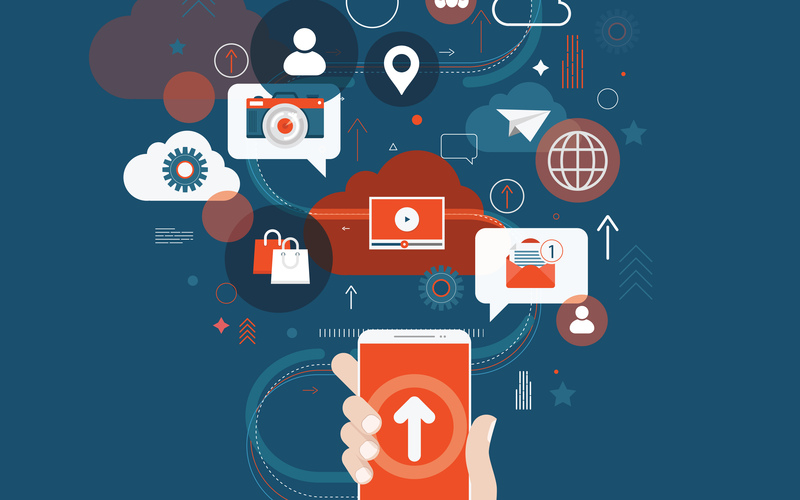Podcast Audio Transcript
Mimi: Hello listeners, this is Mimi; thank you for tuning in to yet another exciting and informative podcast from us at Infosys BPM. Today, we are discussing about generative AI in marketing. And to talk about this, we have here with us, Shyam Rao, AVP – Digital Interactive Services. Welcome Shyam. How are you?
Shyam: I’m doing great Mimi. It feels nice to be back in this podcast again.
Mimi: Good to hear that! And we are always on the lookout for your insights. So, Shyam, generative AI is such a groundbreaking technology of our times. I believe applications like ChatGPT would be game-changing for marketers globally.
What’s your view on where generative AI will be more effective in marketing?
Shyam: Indeed Mimi. Generative AI is a very exciting and innovative technology. It has gained significant relevance in the field of marketing, and marketers will increasingly need to grapple with it head on. Areas primarily now being explored are in using AI to create content, develop designs and assist in various marketing-related tasks. Let me touch upon a few areas where there has already been some traction in using Gen AI in Marketing:
Firstly, content generation: Generative AI can create text, images, and even videos. Marketers can use it to generate product descriptions, blog posts, social media content, and even advertising copies at a scale never imagined before
Secondly, personalization: AI algorithms can analyze data and create personalized marketing messages for different customer segments. This helps in tailoring marketing campaigns to individual preferences and needs.
Thirdly, chatbots and virtual assistants: AI-powered chatbots and virtual assistants can engage with customers in real-time, answer their queries, and guide them through the purchasing process, enhancing the customer experience.
Another major area is data analysis: AI can analyze large data sets to identify trends, customer behavior, and market insights. Generative AI can also predict future customer behavior, helping marketers anticipate trends and adapt strategies accordingly.
It's important to note that while generative AI offers many advantages in marketing, it should be used thoughtfully and ethically. There are many pitfalls to avoid, and one must stay updated on the latest AI advancements and concerns around it.
Mimi: I can vouch for most of those use cases. I have found the content generated by AI to be a really great starting point in many cases.
I see a lot of development in the generative AI space now with lots of companies gearing up on Gen AI. Could you give an overview of the market?
Shyam: Yes, Mimi. It’s true that a lot of hustle and bustle is going on in the Gen AI space now.
For instance, Publicis Sapient acquired full stake in Publicis Sapient AI Labs. This move is a notable step in bolstering data and AI capabilities and is poised to influence marketing strategies by enabling the development of innovative solutions and data-driven insights across industries.
WPP has partnered with NVIDIA to build a generative AI-enabled content engine for digital advertising. This collaboration signifies a commitment to harnessing AI's creative potential for producing content in the digital advertising realm, potentially revolutionizing content creation and personalization.
Omnicom on the other hand has strengthened its partnership with Adobe to bring enterprise generative AI capabilities to clients. Omnicom also partnered with Google to integrate generative AI into its ad-tech platform. This integration could lead to more efficient ad targeting and content creation.
It's projected that AI will have a substantial impact on advertising revenue, with generative AI being a pivotal driver. Leading companies in the marketing and communication industry are actively embracing generative AI to shape the future of marketing and advertising.
Mimi: I agree, there are so many developments in the generative AI space. But at the same time, aren’t there serious concerns as well? There are discussions going on around areas like copyright ownership of AI-generated content.
What’s your take on what we need to be careful about, when it comes to AI-generated content?
Shyam:Excellent question, Mimi. Yes, there are several key areas we need to be wary about. Let me touch upon a few such areas here.
First of all, bias and ethics: Generative AI models are trained on vast data sets, and if these data sets contain inherent biases, the AI can inadvertently perpetuate those biases. For instance, it may generate content with gender, racial, or other biases.
Secondly, as you mentioned ownership and copyright: Determining the ownership and copyright of AI-generated content can be a complex issue. In many cases, it's the human creators and trainers of the AI who may hold copyright, but this may vary by jurisdiction. Establishing clear guidelines and legal frameworks for AI-generated content ownership is essential.
Thirdly, there is the question on reliability. Generative AI isn't always infallible. It can generate content that is nonsensical or even harmful. We all would have seen such instances where Gen AI has generated images with six toes, extra hands or text with no meaning. To ensure reliability, it's crucial to have human supervision, quality checks, and mechanisms for filtering and correcting AI-generated output.
Generative AI often requires access to significant amounts of data. Ensuring that this data is collected and used in a way that respects privacy regulations is vital. Companies need robust data protection measures and should be transparent about data usage to build trust with users.
Generative AI can be used to create convincing deepfake content, where individuals' identities are manipulated in videos or images. Preventing misuse and disinformation is a significant challenge.
Hence, addressing issues such as bias, ownership, reliability, data privacy, and ethical considerations is essential, Mimi.
Mimi: Thank you, Shyam. I believe Gen AI applications will revolutionize how we do marketing. Tools like ChatGPT are good examples of this. Let’s hope to see even more powerful AI tools coming up in the future. Thank you so much for your time in today’s podcast. It was quite enlightening.
Shyam: Thank you, Mimi. It was nice to talk about these innovations.
Mimi: Dear listeners, if you enjoyed our podcast today, please don’t forget to share and like it on social media. Our social handles are mentioned in the podcast page. The podcast will be available on various platforms like Google Podcasts and Spotify, in addition to our website.
Also, if you have any queries, do reach out to us through the email address on the podcast description. Watch this space for more exciting podcasts coming up. Once again, thank you for tuning in, stay safe and stay sharp. Have a nice day!






